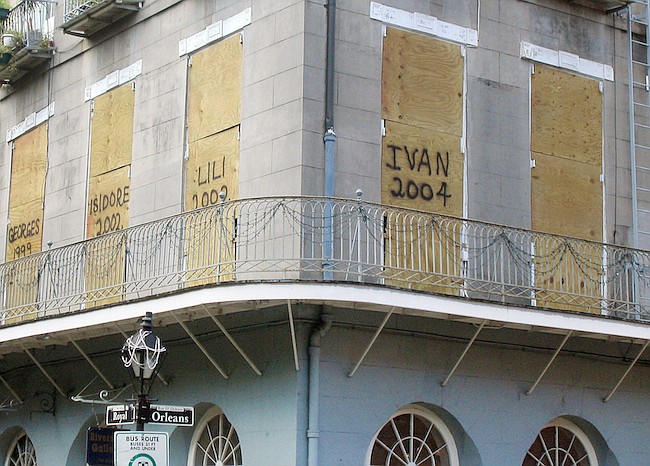- April 22, 2024
-
-
Loading

Loading

For the first time in 11 years, a hurricane made landfall in Florida last week. For many Floridians, that meant restocking on water bottles, putting up shutters on the windows, and waiting out the storm. It’s a different story for Florida Realtors, whose jobs rely on protecting the homes that hurricanes set out to destroy. Preparing for hurricane season involves multiple processes before, during, and after the hurricane reaches land.
Before a hurricane hits, Realtors consider the policies in place for their properties. According to the Florida Realtors Hurricane Preparation and Recovery Plan, that includes assessing replacement coverage, any policy exclusions and flood insurance. Flood insurance is especially important during hurricane season, the plan says, as even tropical depressions can produce torrential amounts of rain.
“What you need to be doing is taking a close look at where you live,” said Dennis Feltgen of the National Hurricane Center in Miami. “You need to ask yourself, ‘Do I live in a storm-surge hurricane evacuation zone? Am I susceptible to flooding?’ It’s important to get an insurance check-up and strengthen your property.”
The Orlando Regional Realtor Association also recommends hiring a professional pre-hurricane inspector to identify any potential weak spots in a property. The Florida Realtors Hurricane Preparation and Recovery Plan recommends taking photos of the property before and after a hurricane.
“You don’t need to have a major storm to have a major impact. Tropical Storm Debby had lots of flooding. Hurricane Sandy was just a Category 1 and had plenty of flooding. And with Hurricane Wilma, the power went out for a week,” Feltgen said.
After a hurricane hits, it’s time to assess the damage. John Lazenby, president of the Orlando Regional Realtor Association, said Realtors need time to inspect damaged properties and, if necessary, take damaged homes off the market. Lenders, he said, may also want to reexamine a pending property sale, which can delay closing. If a home inspection is needed, but the inspection period has already passed, he said, this also poses a problem. All of these factors contribute to the slowing down of home sales during hurricane season.
“The housing market slows for a few months after a hurricane as sellers take damaged homes off the market,” Lazenby said. “A few months after a hurricane, however, the housing market returns to pre-storm conditions. A smaller inventory of homes leads to higher home prices.”
This trend was reflected in the fall of 2004, when hurricanes Charley, Frances and Jeanne slowed down sales by almost 20 percent according to market statistics. By December, however, home prices were up by almost 25 percent.
As for this year’s hurricanes, Feltgen says to keep an eye on the news.
“Hurricane predictions come in before the hurricane season, and only a few are updated in August,” Feltgen said. “What predictions tell you is the number of named storms throughout the season. What they don’t tell you is whether or not you’re going to get hit. And you need to be prepared in case you do.”